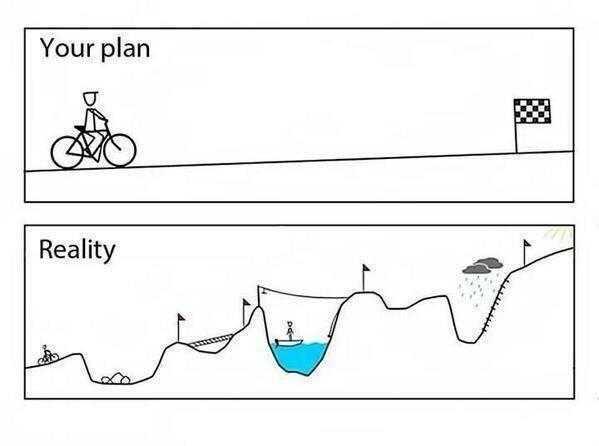Forecasting and Memory
When we make plans for the future, we are often too optimistic.
For example, we are subject to committing the planning fallacy by underestimating how long it will take us to complete a task and ignoring past experience. Similarly, when we try to predict how we will feel in the future, we may overestimate the intensity of our emotions.
373
1.51K reads
CURATED FROM
IDEAS CURATED BY
Creator. Beer ninja. Travel lover. Twitter evangelist. Lifelong writer. Zombie expert.
The idea is part of this collection:
Learn more about psychology with this collection
How to make rational decisions
The role of biases in decision-making
The impact of social norms on decision-making
Related collections
Similar ideas to Forecasting and Memory
The planning fallacy
The planning fallacy is the likelihood to underestimate the time it will take to finish a future task despite knowing that similar projects have taken longer in the past. For example, writers underestimate how long it will take to complete a novel; product managers miscalcula...
The Impact Bias
It's present when we tend to overestimate the length or intensity of happiness that major events will create. The Impact Bias is one example of affective forecasting, which is a social psychology phenomenon that refers to our generally terrible ability as humans to predict our future emoti...
The Planning Fallacy And Social Pressure
The workplace is a competitive zone, and enthusiastic workers take an unfair lead even though their plans are unrealistic and overly optimistic.
You don’t need to succumb to the pressure, once you understand how the planning fallacy works. The outcome will provide clarity to all.
Read & Learn
20x Faster
without
deepstash
with
deepstash
with
deepstash
Personalized microlearning
—
100+ Learning Journeys
—
Access to 200,000+ ideas
—
Access to the mobile app
—
Unlimited idea saving
—
—
Unlimited history
—
—
Unlimited listening to ideas
—
—
Downloading & offline access
—
—
Supercharge your mind with one idea per day
Enter your email and spend 1 minute every day to learn something new.
I agree to receive email updates

